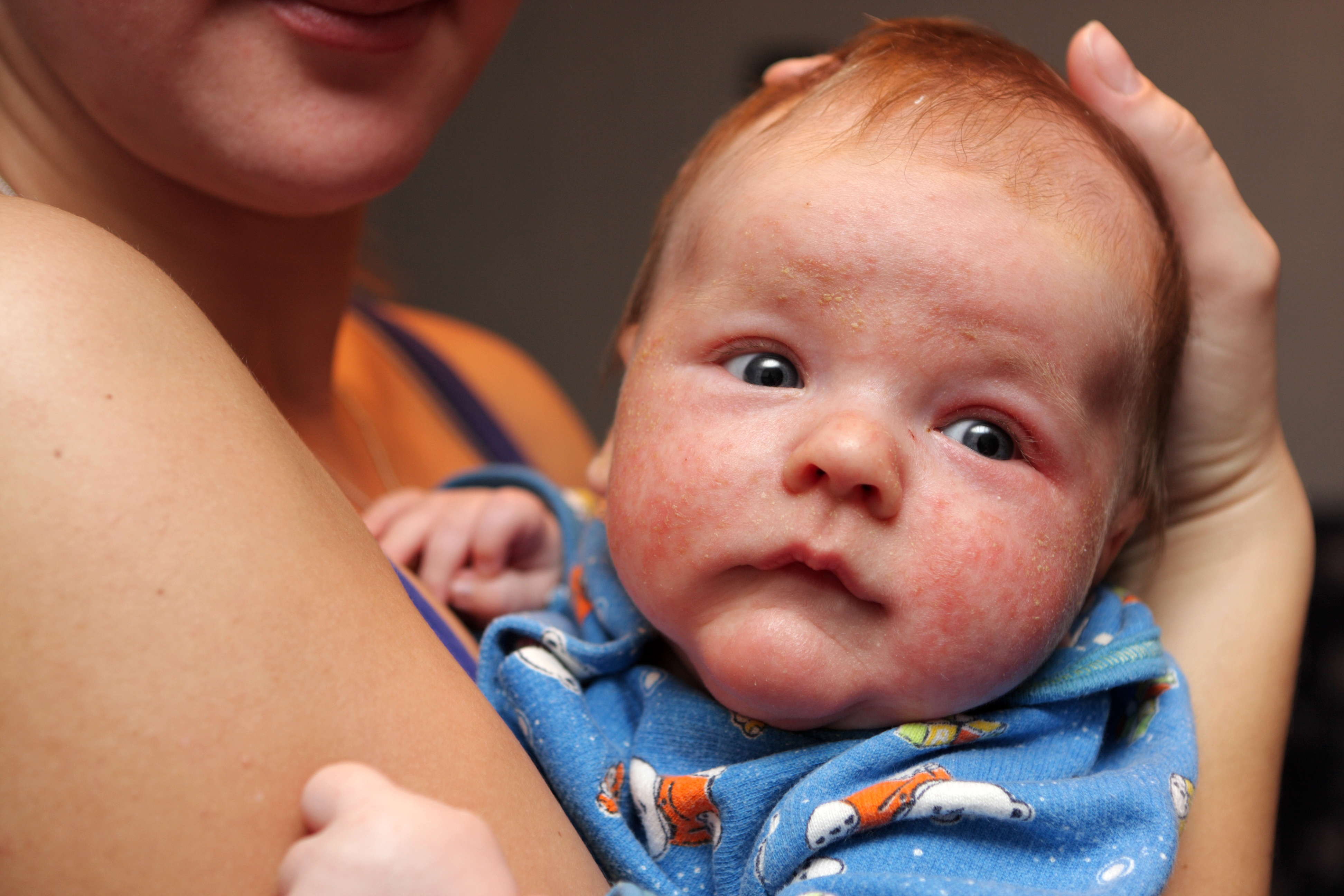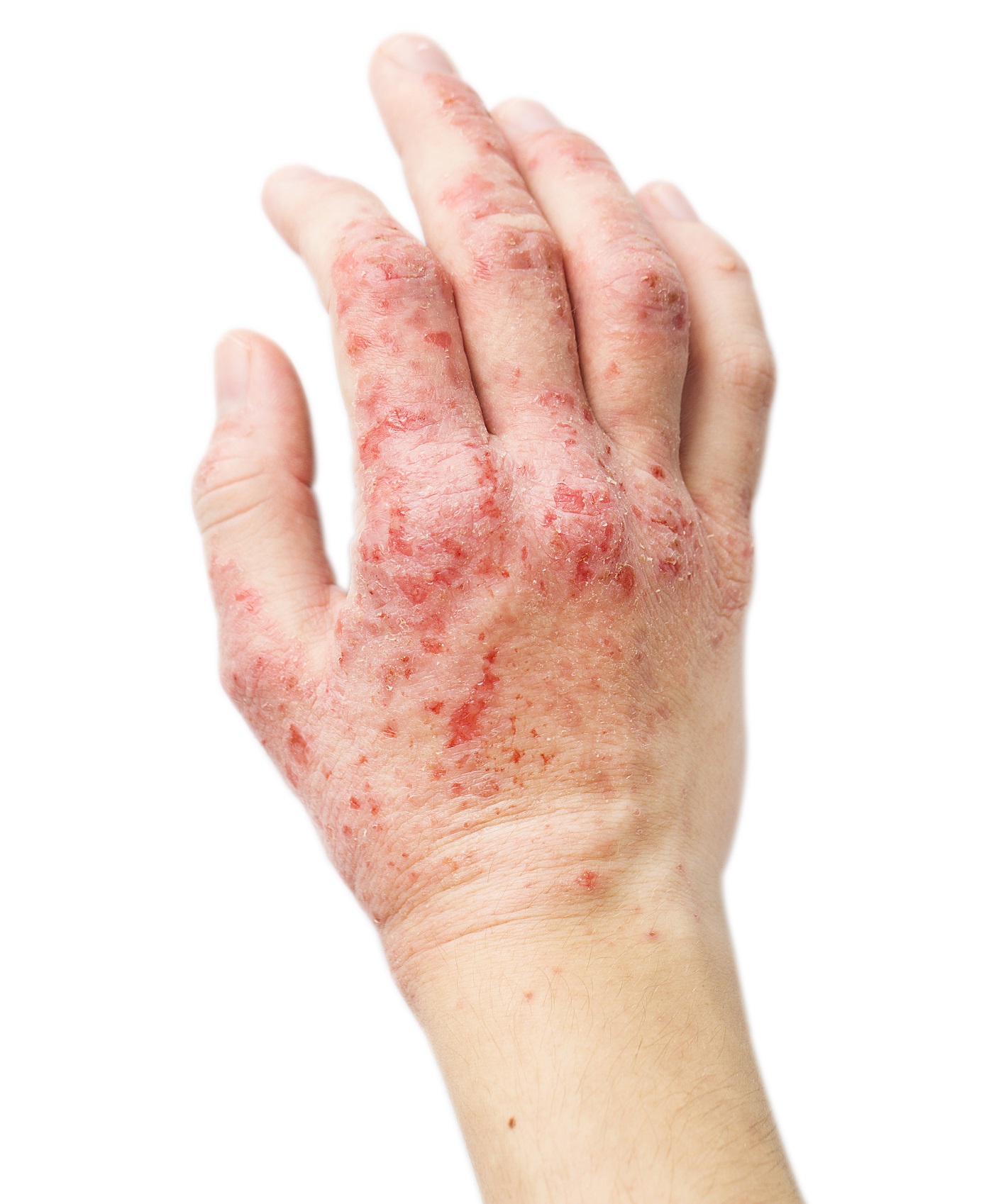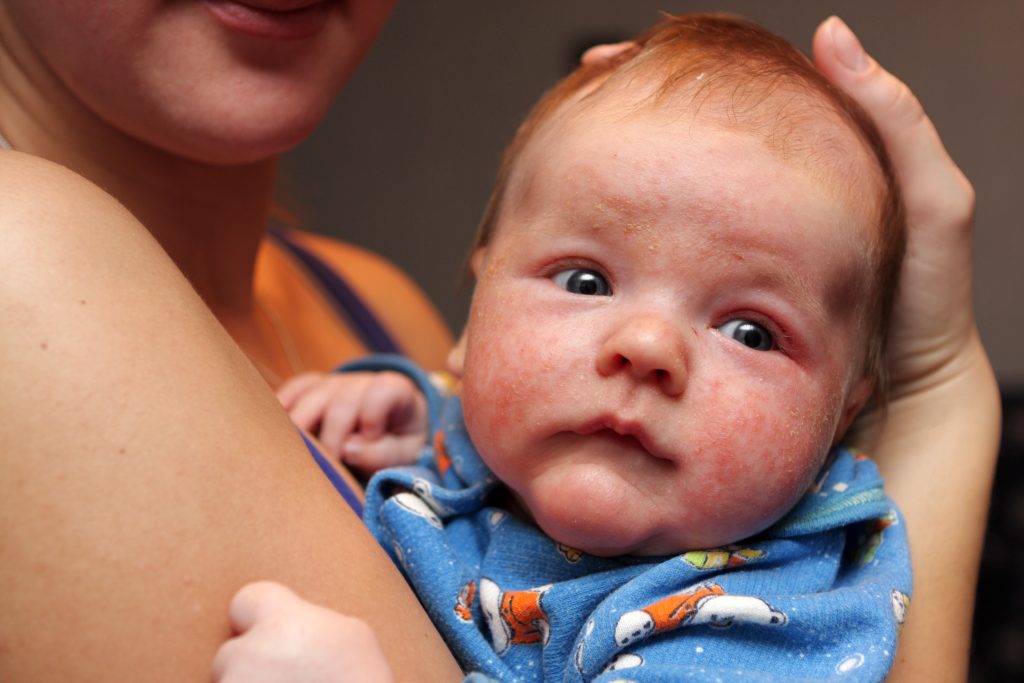Eczema Treatment Malaysia

Eczema
What is Eczema?
Eczema is a general term for a group of conditions that cause the skin to become inflamed, dry, and itchy. Atopic eczema (atopic dermatitis) is the most common form of eczema.
Who gets eczema?
Eczema is a common skin condition. It is more common in children, often developing before their first birthday. But it may also develop for the first time in adults. 10-20% of all infants have eczema. However, nearly half outgrow the condition or have significant improvement as they get older. Eczema affects males and females equally, and is more common in people who have a personal or family history of asthma and allergies.
What Causes Eczema?
The exact cause of eczema is unknown, but researches suggest its due to a combination of gene and enviromental triggers.
Eczema is thought to be linked to an overactive response by the body’s immune system to an irritant. Some cells of the immune system release chemicals under the skin surface, which causes inflammation.
The oily (lipid) barrier of the skin tends to be reduced in people with eczema. This defects in the skin barrier allows moisture out (increase water loss and dry skin) and germs in.
The condition is not contagious and can’t be spread from person to person.
Eczema is triggered by several factors, such as changes in climate, pollution, house dust mites, dander from pets, pollens, detergent, certain food, stress, hormonal changes or infection.
What are the symptoms?
No matter which part of the skin is affected, eczema is almost always itchy. Sometimes the itching will start before the rash. The rash most commonly appears on the face, skin folds such as back of the knees or elbows, hands, and feet.
Affected areas usually appear dry and scaly. In fair-skinned people, these areas may appear reddish while in darker-skinned people, the affected area may cause discoloration, making it appear lighter or darker.

How is eczema diagnosed?
Most doctors can tell if it’s eczema by looking at your skin and asking a few questions. There are no test to diagnose eczema but since many people with eczema also have allergies, your doctor may perform allergy tests to determine possible irritants or triggers.
How is eczema treated?
There is no cure for eczema. Treatment for the condition aims to heal the affected skin and prevent flare-ups of symptoms.
- Home care
Patients with eczema are advised to take lukewarm baths, apply moisturizer within 3 minutes of bathing to “lock in” moisture, moisturize every day, wear cotton and soft smooth fabric, and avoiding rough, scratchy fibers and tight-fitting clothing, use a mild soap or a non-soap cleanser when washing, air dry or gently pat skin dry with a towel, rather than rubbing the skin dry after bathing, avoid activities involving rapid changes of temperature and activities that make you sweat, learn and avoid individual eczema triggers, use a humidifier in air conditioned rooms and keep fingernails short to prevent scratching from breaking the skin.
- Medications
Medications that doctors can prescribe to treat the symptoms of eczema are such as topical corticosteroid creams and ointments, systemic corticosteroids (injection or tablets), antibiotics/ antiviral/ antifungals if eczema occurs alongside a skin infection, antihistamines to reduce itch, topical calcineurin inhibitors (reduces inflammation), barrier repair moisturizers (reduce water loss and repair the skin), phototherapy with ultraviolet A or B waves and biologics such as dupixent injection.

Dr Kong Chau Shing
MD (Russia)



